Filter by
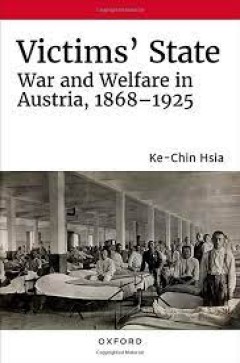
Victims' State
Victims' State is the first integrated account of how Imperial Austria and the successor Austrian Republic responded to the needs of citizen-soldiers and their families in the age of mass politics and the First World War. It shows that compulsory military service and war mobilization changed the mission of the Austrian state and citizens' understanding of what they were entitled to, thus showin…
- Edition
- -
- ISBN/ISSN
- 9780197582398
- Collation
- -
- Series Title
- -
- Call Number
- -
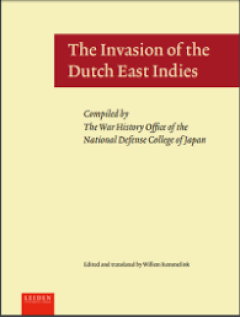
The invasion of the Dutch East Indies
Between 1966 and 1980, the War History Office of the National Defense College of Japan published the 102-volume Senshi Sōsho (War History Series). These volumes give a detailed account of the operations of the Imperial Japanese Army and the Imperial Japanese Navy during the Second World War. This book, vol. 3 of the series, describes in depth the campaign to gain control over the Indonesian ar…
- Edition
- -
- ISBN/ISSN
- 9789400602298
- Collation
- -
- Series Title
- -
- Call Number
- -

The Frontier of Patriotism Alberta and the First World War
With the centenary of the First World War, communities across Canada arranged commemorations of the war experience to honour local servicemen who, through their triumphs and sacrifices, were presented as laying the foundation for a free and independent country. Often overlooked are the triumphs and sacrifices of those who supported those soldiers, and the war effort in general, back at home. Th…
- Edition
- -
- ISBN/ISSN
- 9781552388358
- Collation
- -
- Series Title
- -
- Call Number
- -

Wartime Schooling and Education Policy in the Second World War Catholic Educ…
This book deals with the development of private secondary schooling during the Second World War in Belgium. It focuses on how the German occupier used education to gain acceptance of the regime, and discusses the attitudes of Belgian education authorities, schools, teachers and pupils towards the German occupation. Suggesting that the occupation forced Belgian education authorities, such as the…
- Edition
- -
- ISBN/ISSN
- 978-1-137-52011-1
- Collation
- XII, 220
- Series Title
- -
- Call Number
- -
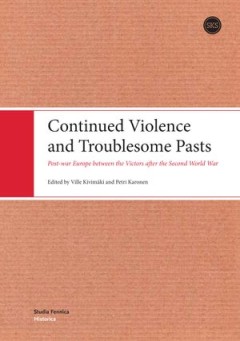
Continued Violence and Troublesome Pasts: Post-War Europe Between The Victors…
In most European countries, the horrific legacy of 1939–45 has made it quite difficult to remember the war with much glory. Despite the Anglo-American memory narrative of saving democracy from totalitarianism and the Soviet epic of the Great Patriotic War, the fundamental experience of war for so many Europeans was that of immense personal losses and often meaningless hardships. The anthology…
- Edition
- -
- ISBN/ISSN
- 9789522228574
- Collation
- -
- Series Title
- -
- Call Number
- 909.81
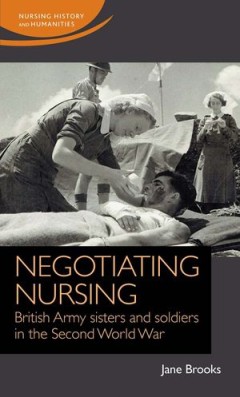
Negotiating Nursing
Negotiating nursing explores how the Queen Alexandra's Imperial Military Nursing Service (Q.A.s) salvaged men within the sensitive gender negotiations of what should and could constitute nursing work and where that work could occur. The book argues that the Q.A.s, an entirely female force during the Second World War, were essential to recovering men physically, emotionally and spiritually from …
- Edition
- -
- ISBN/ISSN
- 9781526147257
- Collation
- -
- Series Title
- -
- Call Number
- -
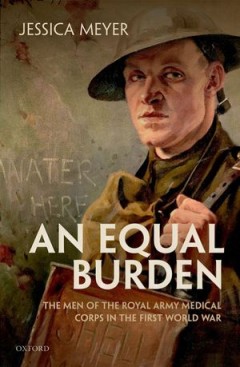
An Equal Burden
An Equal Burden forms the first scholarly study of the Army Medical Services in the First World War to focus on the roles and experiences of the men of the ranks of the Royal Army Medical Corps (RAMC). These men, through their work as stretcher bearers and orderlies, provided a range of labour, both physical and emotional, in aid of the sick and wounded. They were not professional medical careg…
- Edition
- -
- ISBN/ISSN
- 9780198824169
- Collation
- -
- Series Title
- -
- Call Number
- -
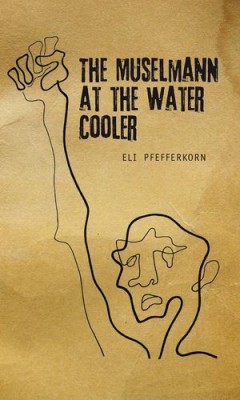
The Muselmann at the Water Cooler
"A survivor of concentration camps and the Death March, Eli Pfefferkorn looks back on his Holocaust and post-Holocaust experiences to compare patterns of human behavior in extremis with those of ordinary life. What he finds is that the concentration camp Muselmann, who has lost his hunger for life and is thus shunned by his fellow inmates on the soup line, bears an eerie resemblance to an offic…
- Edition
- -
- ISBN/ISSN
- 978-1-936235-66-7
- Collation
- -
- Series Title
- -
- Call Number
- 940.53 PFE m
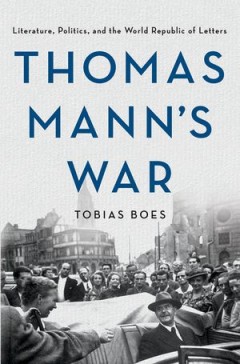
Thomas Mann's War: Literature, Politics, and the World Republic of Letters
In Thomas Mann's War, Tobias Boes traces how the acclaimed and bestselling author became one of America's most prominent anti-fascists and the spokesperson for a German cultural ideal that Nazism had perverted.Thomas Mann, winner of the 1929 Nobel Prize in literature and author of such world-renowned novels as Buddenbrooks and The Magic Mountain, began his self-imposed exile in the United State…
- Edition
- -
- ISBN/ISSN
- 9781501745010
- Collation
- -
- Series Title
- -
- Call Number
- -
 Computer Science, Information & General Works
Computer Science, Information & General Works  Philosophy & Psychology
Philosophy & Psychology  Religion
Religion  Social Sciences
Social Sciences  Language
Language  Pure Science
Pure Science  Applied Sciences
Applied Sciences  Art & Recreation
Art & Recreation  Literature
Literature  History & Geography
History & Geography